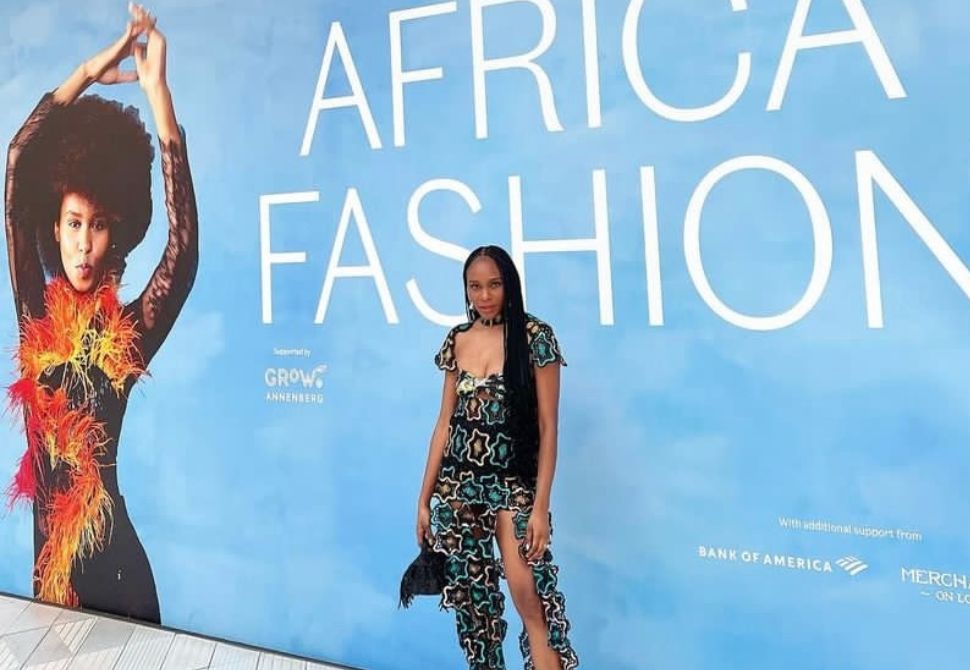
Tare Robinson Koremene’s Innovative Use of Plantain – Eco-Friendly Hair Extensions
Meet the Nigerian Innovator: Tare Robinson Koremene
In this story, Naijabest Magazine wishes to introduce you to an exemplary Nigerian woman, Tare Robinson Korumene, from Bayelsa State. She is redefining fashion through her creative and sustainable solutions for producing hair extensions from plantain/banana stems. She founded Eco FIP Nigeria Limited and Dunaly Hair, the plantain/banana stem-made hair extension. Eco FIP specializes in producing and promoting eco-friendly household items and beauty products from crops.
In her interview with Chidera Nwafor, she mentioned collecting and processing plantain or banana stems into hair extensions instead of leaving them to rot on farms.
She added that furniture, plates, cutlery, bags, hats, and placemats can also be made from the stems. Tare noted that the stems contain fibres from which the hair extensions are made.
The Discovery
Tare’s innovative use of plantain stems dates back to childhood when she used them to make dolls. Her research on plant-based materials during the COVID-19 pandemic exposed her to a Ugandan who made hair extensions from Sisal plants. Later, she discovered someone else producing similar extensions using plantain stems. Motivated, Tare teamed up with friends to collect plantain stems and extract the fibres. In addition, she researched the functionalities of an extractor and collaborated with a Lagos fabricator who built the machine.
The Production Process
Tare Robinson explained that a production cycle takes one day and produces two extension packs. She added that the process begins by slicing the plantain stems and extracting the fibres using an extractor.
The next steps involve manually combing, softening, and dying the extensions with organic colours. The hair extensions are also crafted into braided wigs, while the waste from the brushed extensions is repurposed to stuff pillows. Tare noted that the pillows will be improved in the future.
While speaking with Chidera, Tare expressed that the liquid waste from the product disposed of also leads to the growth of mushrooms.
Challenges
Since exploring plantain/banana stems for making hair extensions, Tare Robinson has encountered issues with sales and staff payment, and the hair extension brand is yet to penetrate the market.
Regarding sales, she revealed that she has only received two sample orders from the U.S., and some people there have also shown interest in distributing and packaging the hair extensions. Hence, her staff is currently paid a token with financial support from friends and family.
She further said that the brand has not started receiving orders because it is still in the experimental stage and may be unable to handle high demands given its current development level.
Currently, the brand’s production capacity is limited due to the lack of machinery to speed up the process. Tare Robinson explained that they rely on a single extractor, producing 5-10 kilograms daily. She emphasized the need for a combing machine, noting that its absence restricts them to making just two packs of extensions daily.
With the addition of a combing machine, production can move to 20-30 packs per day. As for braided wigs, Tare outsources the process, as hiring in-house braiders is not financially feasible at the moment..
The Human-Synthetic Hair Difference
Tare Robinson confirmed that they have identified the hair extension as usable and that it falls between natural and synthetic hair. She said people should note that the extension’s texture cannot be identical to human hair.
However, the product offers several advantages: it is reusable, lighter, softer, and more attractive with each use. It contains zero chemicals and does not itch. It is also eco-friendly and biodegradable.
Future Plans
Tare Robinson disclosed that the brand will get more machines to scale the business. This will help the brand increase its production rate, hire more workers, pay salaries, and even reduce the hair extension prices. She mentioned that the combing machine will also be fabricated.
Tare Robinson revealed that the brand will have its own plantain and banana farm to tackle future scarcity or high costs of plantain stems. She mentioned that when sales start rolling in, it will pay better salaries and pay farmers for their plantain stems.
The Team
Tare Robinson commended the hair brand’s 22 workers, but she mentioned that the brand should have more because of the high work volumes.
Reactions from Netizens
In response to this innovative idea, DJ Pakorich mentioned on his YouTube channel that the government should empower Tare, as she would employ
people. He added that her process would help farmers increase plantain and banana production and help slash the prices of bone-straight hair. He encouraged Africans to support her instead of waiting till foreigners adopt the idea.
Subscribers on Chidera’s channel have given Tare Robinson work accolades:
InoKun-lu5ef said, “This is a game changer for Nigeria and Africa. The wigs/extension hair industry is worth billions. If Africa can capture this market using plantain fiber, it will create well-paid jobs and improve the lives of our people. Congratulations on this organic innovation.”
Nelosoloved expressed, “Can this woman be heavily funded or invested in? This here is gold because women will never stop using braids.”
Energylady9409 mentioned, “I’m a black American woman and I absolutely love this lady and her products. I pray that your business is a success! This is a billion-dollar industry. And yes, I support you.”
AfricanTalesBySomma added, “At least this one won’t cause cancer…nice one!!”
Oluomalocs4964 said, “Please apply for the Tony Elumelu grant. You’re the perfect candidate. You’re not only following a zero-waste model but also creating jobs for young women. You make me proud to be a Nigerian.”
EphyAvenue added, “We should fund her so she can scale her manufacturing. She is here to help black women; the existing synthetic hair packs are made of hormonally unbalancing chemicals. A war on all of us. She’s one of our allies! A Hero.”
Madgiemadgie9128 expressed, “She must patent and register the idea as hers IMMEDIATELY. Ownership of Intellectual Property/trademarks, etc, is critical.”
Tare Robinson Korumene’s passage from a childhood of creativity to revolutionary, sustainable hair extensions proves innovative success. The fact that she can turn plantain stems into an eco-friendly hair beauty product does not only answers the environmental safety concerns, but also provide the market with a unique product in the hair extension industry. Even if sales and production are difficult, Tare knows exactly what he wants to do in the future. Hoping to scale up production, employ more workers, and open her own plantain and banana farm, she’s set to make an even bigger impact. The encouraging responses from netizens as well as the possibility of funding and support also shed some light on the significance and potential of her work. Tare’s journey is a form of inspiration and a piece of evidence for the fact that one man’s brilliance can change and provide opportunities to the masses.









1 Comment
Here’s a prove that, Recycling and innovation work hand in hand